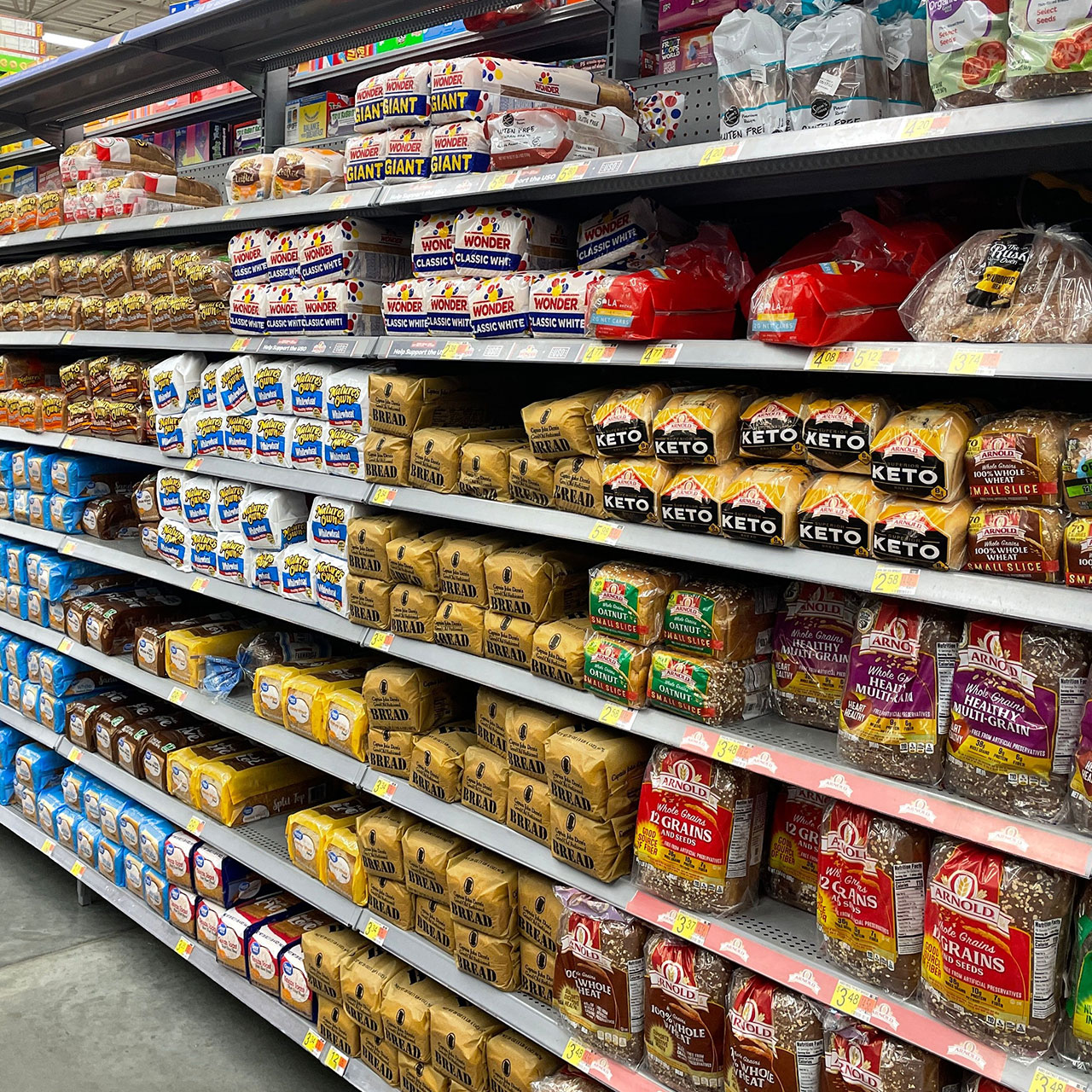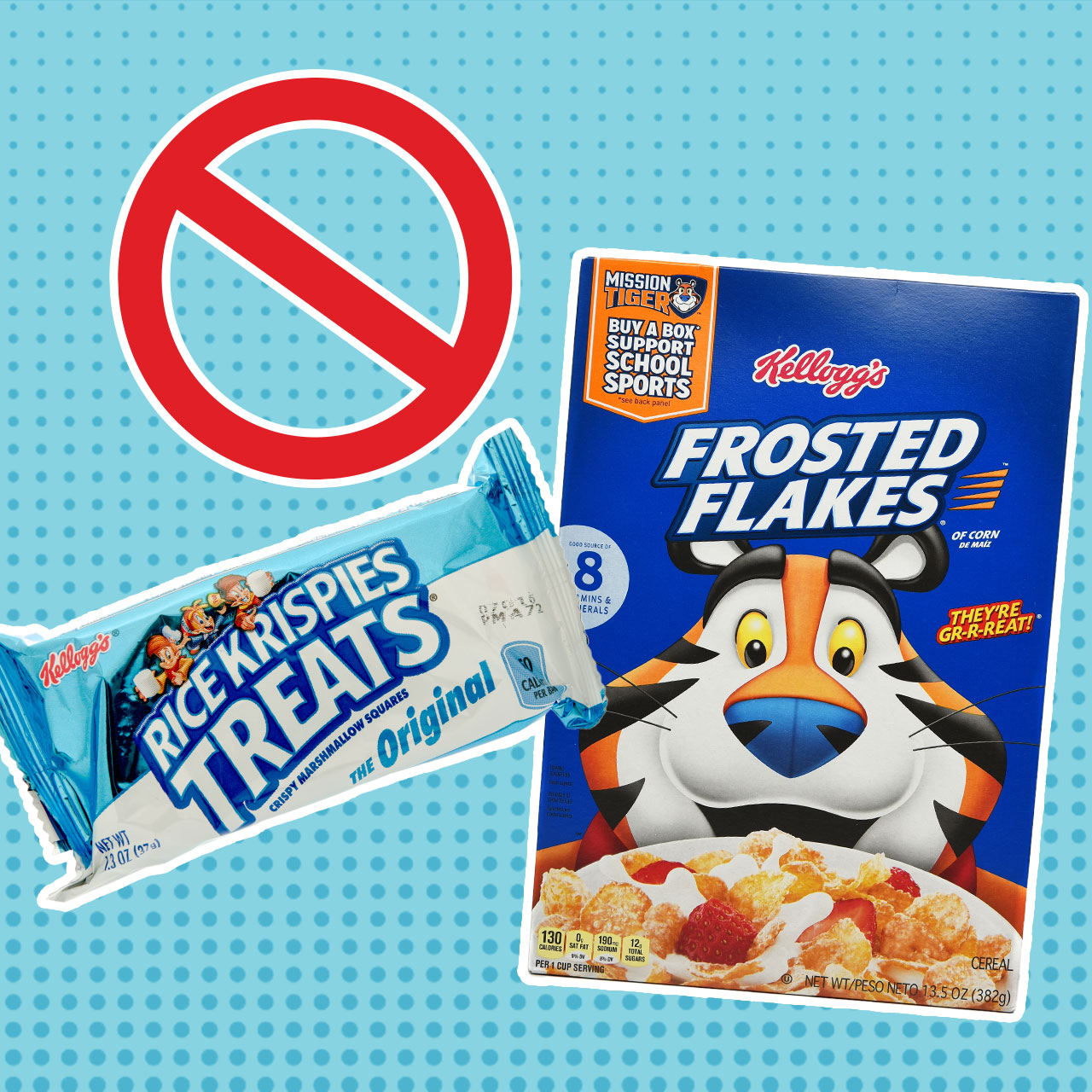If you’re trying to lose weight, you may think that eating as little fat and as few calories as possible is the best way to go. However, it’s important to remember that this isn’t necessarily the case and can even thwart your weight loss efforts. In fact, healthy fats are a crucial part of a balanced diet and play an integral role in weight loss. Still, many people reach for breakfast items labeled as “low-fat” or “diet” in an effort to cut their calorie intake and shed pounds. As it turns out, many of these options can actually contribute to weight gain.
To shed some light on a few of the options you should be wary of, we spoke to dietitian Jesse Feder. He told us that low-fat granola, yogurt, breakfast bars, instant oatmeal, and muffins can inadvertently lead to weight gain. Learn more about the risks of each below.

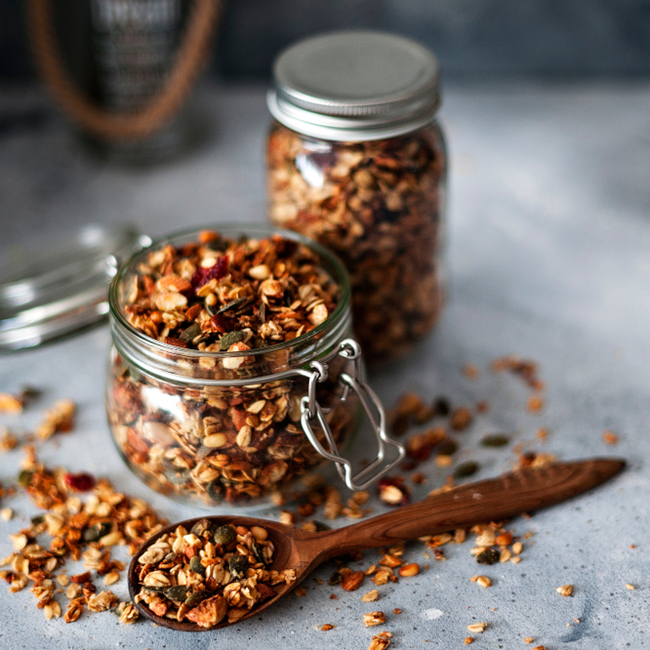
1. Low-Fat Granola
Granola is a popular mix-in for yogurt and smoothie bowls, and even commonly enjoyed as a crunchy snack on its own. However, while it may seem healthy, Feder warns that low-fat granola can be a stealthy source of excess calories and sugar, which we all know can lead to many health issues. He cautions, "The high sugar and calorie content is what can actually lead to weight gain over time." He advises opting for homemade granola crafted from whole grains, seeds, and nuts, steering clear of store-bought varieties laden with sugars. Got it!
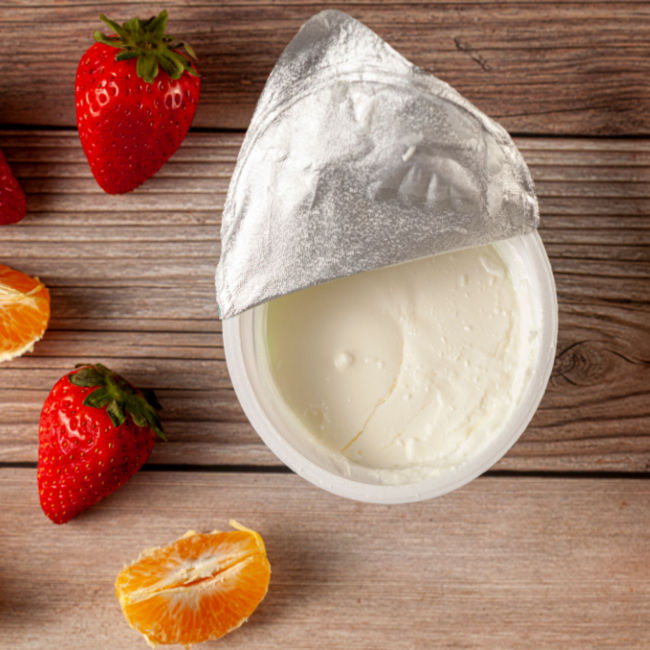
2. Low-Fat Yogurt
Yogurt is a fantastic food that comes with many benefits—as long as you choose the right kind. While often perceived as a healthy breakfast option for those looking to lose weight, low-fat yogurts can harbor significant amounts of added sugars to make them taste better. "The high sugar content contributes to a lot of extra calories which can lead to weight gain over time," Feder warns.
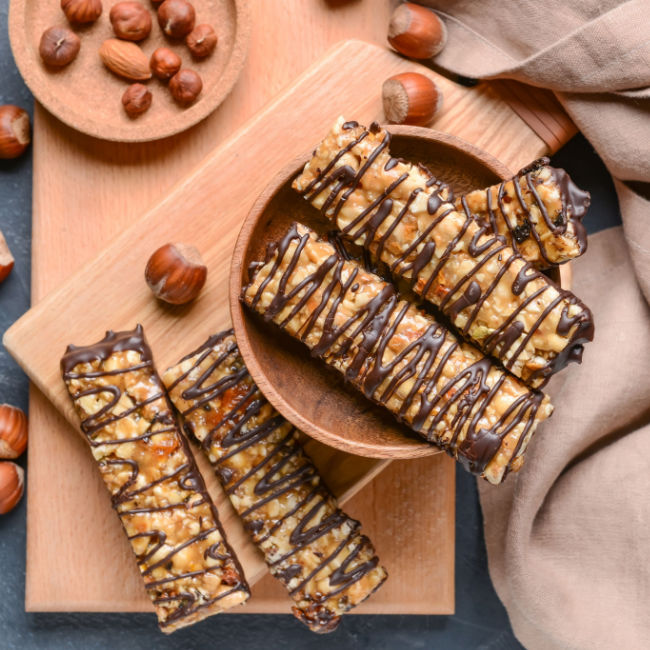
3. Low-Fat Breakfast Bars
Convenient as they may be, low-fat breakfast bars or protein bars can pack a sugary punch that undermines weight management efforts. Despite their healthy reputation, Feder warns that, like granola and yogurt, granola bars and protein bars are typically loaded with sugar and other unhealthy additives. To make a smarter choice, he suggests opting for bars that are both low in fat and sugar, thereby reducing overall calorie intake—or just going with a more nutritious breakfast altogether.
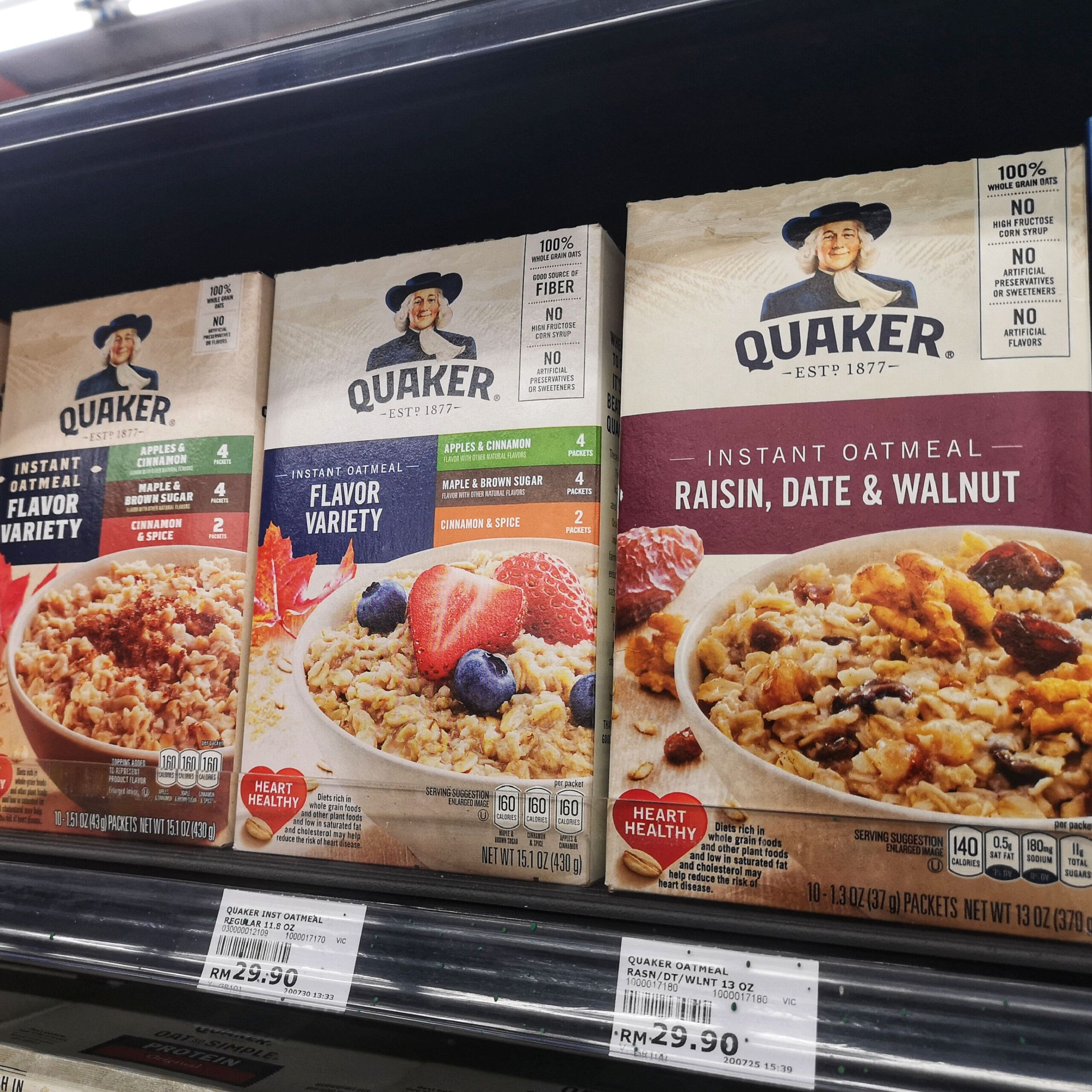
4. Instant Oatmeal Packets
Oatmeal is another example of a healthy breakfast that can become unhealthy if you choose the wrong kind. Instant oatmeal, Feder warns, comes with many downsides. According to him, many instant oatmeal packets harbor hidden sugars, flavorings, and additives. "These can contribute to a lot of calories as well and lead to weight gain over time," he warns. To sidestep this dietary pitfall, he advises choosing plain oatmeal and enhancing it with a low-calorie sweetener or other healthy toppings for added flavor without the extra calories.

5. Low-Fat Breakfast Muffins
Often perceived as a lighter alternative to their full-fat counterparts, low-fat breakfast muffins can be deceivingly high in sugar and carbohydrates. Feder points out that this seemingly health-conscious option is actually likely to pack in calories and sugar to your breakfast. Instead, stick to healthy, complex carbs like oats (but not instant!) and multigrain or sprouted bread. Your body will thank you!










